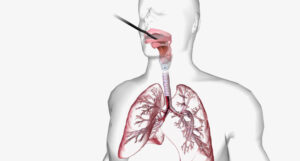What is Sleep Apnea?
Sleep apnea is a common sleep disorder. It causes your breathing to stop and start while you sleep. Because of this, your body may not get enough oxygen at night. Many people do not know they have sleep apnea. However, it can affect your health and daily life. According to the CDC, sleep apnea can lead to serious health problems if not treated.
Common Symptoms and Risks
People with sleep apnea often notice certain signs. For example, you may:
In addition, sleep apnea increases your risk for high blood pressure, heart disease, stroke, and diabetes. Because of these risks, it is important to manage sleep apnea early.
Importance of Lifestyle Changes
Making healthy lifestyle changes can help manage sleep apnea. While medical treatments are important, simple changes at home can also make a big difference. For many people, these changes improve sleep quality and reduce symptoms. According to the American Academy of Sleep Medicine, lifestyle tips for sleep apnea can work alongside other treatments.
Effective Lifestyle Modifications
There are several ways to manage sleep apnea at home. Try these practical steps:
1. Weight Management
Extra weight can make sleep apnea worse. Even a small weight loss can help. For example, losing 5-10% of your body weight may reduce symptoms. Eating a balanced diet and staying active are key steps.
2. Change Your Sleep Position
Sleeping on your back can block your airway. Instead, try sleeping on your side. You can use a body pillow to help stay in this position. This simple change may improve breathing at night.
3. Regular Exercise
Exercise helps you sleep better and manage weight. Aim for at least 30 minutes of activity most days. Walking, swimming, or cycling are good choices. Even light exercise can make a difference.
4. Avoid Alcohol and Smoking
Alcohol relaxes your throat muscles, making sleep apnea worse. Smoking can also irritate your airway. Because of this, it is best to avoid both. If you need help quitting, talk to your doctor.
5. Practice Good Sleep Hygiene
Healthy sleep habits can improve sleep quality with sleep apnea. Try these tips:
Tips for Implementing Changes
Making changes can feel hard at first. However, small steps add up over time. Here are some ways to stay on track:
Remember, every positive step helps you manage sleep apnea better.
When to Seek Medical Help
Sometimes, lifestyle changes are not enough. If you still feel tired, snore loudly, or stop breathing at night, see a doctor. In addition, if you have high blood pressure or heart problems, get checked for sleep apnea. A sleep specialist can suggest the best treatment for you. Early care can prevent serious health issues.
For more information, visit trusted sources like the CDC or the American Academy of Sleep Medicine.
Consult a pulmonologist or sleep specialist for personalized advice on managing sleep apnea.






